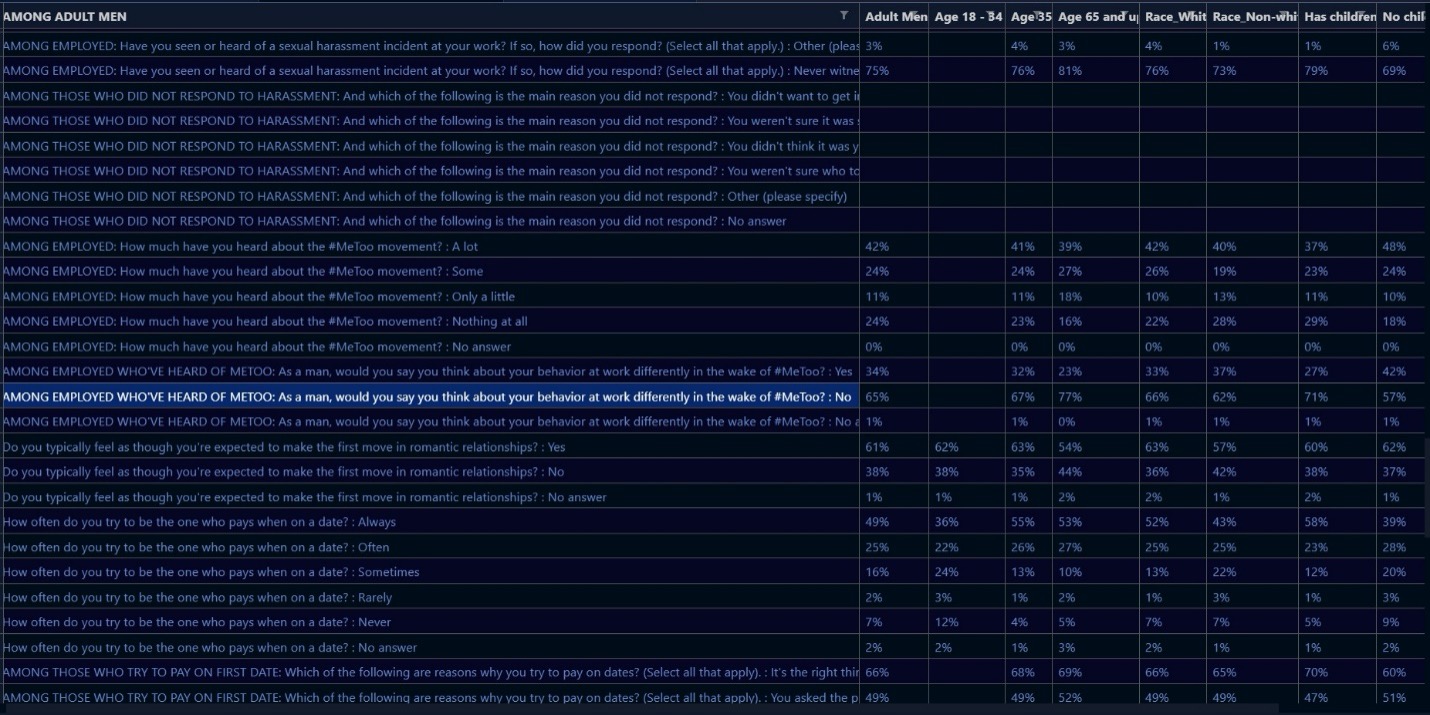Blog post #1: Men say what it means to be a man
Why This Dataset
The title of this dataset, “What do Men Think It Means To Be A Man,” drew me in with its bold, targeted question as I was scrolling on Kaggle. The definition and criteria of a “man” is subjective. Yet the idea is saturated with long-held toxic beliefs about stoicism, aggression, misogyny, homophobia, and a myriad of other problematic behaviors. I was curious about what men thought of the matter.
The Origin Story
There is no specific reason for the dataset’s creation. However, the data’s source comes from a SurveyMonkey survey, created by FiveThirtyEight, a journalistic organization under ABC News. FiveThirtyEight values empiricism, accuracy, transparency, inclusivity, humility, personality, and completeness (“About Us”1). Compiling data about masculinity from the targeted demographic further aids studies about gender, race relations, sexual orientation, sexual harassment, and society’s role in these areas. Furthermore, the dataset’s curator, Yam Peleg, implies that he assembles datasets in Kaggle to identify “real-world problems” (Peleg2). Hence, the data is for both scientific and social purposes.
Limitations of the Dataset
The primary issues with the masculinity survey are that the sample population is too small to be accurate and that it is missing a core demographic. 1,615 men is not enough to gauge the opinion of a country, let alone the entire world (“What Does…”). Furthermore, transgender men are not specified or included in the data. This group will certainly hold a unique perspective on what it means to be a man. FiveThirtyEight should add a column for them.
Questions to Explore
Possible questions to explore using this dataset are:
-
Why do 65% of employed, adult men not think about their behavior differently in the wake of #MeToo? For what reason are most men not reflective?
-
Why is weight the biggest daily concern for 54% of men, out of the other listed reasons?
The necessary modifications to carry out my plans for further analysis require open-ended answers from the participants, or at least a branch off of questions with provided possible answers for those who did select “not think about behavior differently” or “weight.”

Building an Argument
I would present an argument based on this dataset by grouping relevant statistics together based on subject matter—such as asking for professional advice and openness to seeing a therapist—and then organizing the information by demographic category. Once my information is assembled, I would direct my concluding remarks to sociologists, interested news media, and men as a whole.